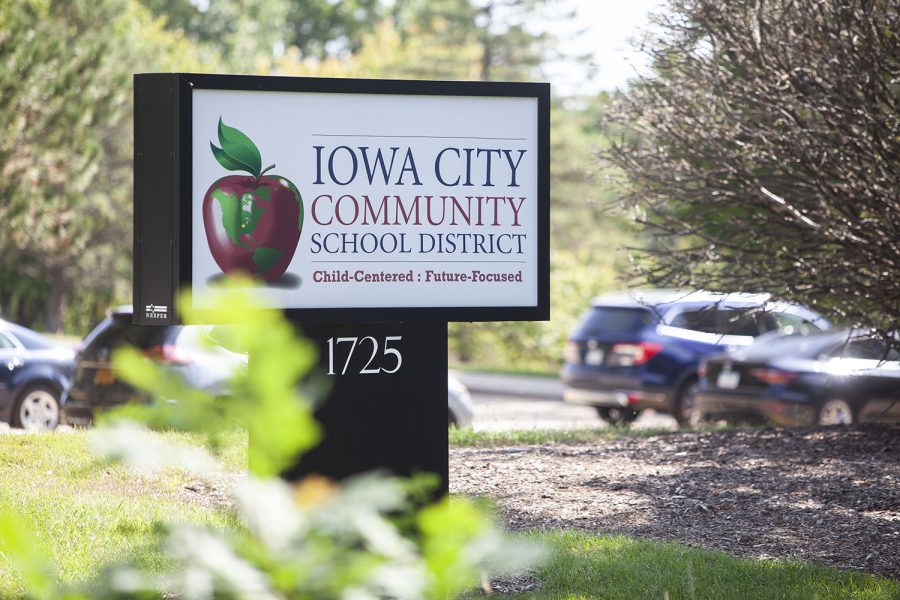RVAP provides Iowa City middle school students with comprehensive sexual education
The classes, taught to sixth and eighth graders, is based on a research-based curriculum from Advocates for Youth.
The Iowa City Community School District sign in Iowa City is seen on Tuesday, Sept. 13, 2022.
October 23, 2022
Iowa City middle school students have started taking new classes on building healthy relationships and preventing sexual violence.
The classes are taught by the Rape Victim Advocacy Program and are geared toward students in sixth and eighth grade. The recent change was made by an amendment passed by the Johnson County Board of Supervisors, with the original program teaching the classes to seventh and ninth graders.
RVAP Assistant Director Michael Shaw said one of the classes’ objectives is to build a connection with students and provide them with resources.
“The other objective of our activities are to provide youth with information related to communication, consent, and dating relationships, and what can be useful ways to engage in those relationships that are safe and healthy for them,” Shaw said.
The reason the classes are now taught to younger students, Shaw said, is to get the information to students as early as possible.
“As we’ve been revisiting how to do what we’re doing better and wanting to be more aligned with the curriculum and provide [the school district] with the support that they need to make sure this information is getting to young folks,” Shaw said.
Part of the effort to provide students with sexual education is in tandem with United Action for Youth. The partnership has the two groups alternate which grade levels they work with so students are consistently getting sexual education classes.
Shaw explained the curriculum used comes from the “3Rs” from Advocates for Youth:
- Rights: “Youth have the inalienable right to honest sexual health information.”
- Respect: “Youth deserve respect.”
- Responsibility: “Society has the responsibility to provide young people with all of the tools they need to safeguard their sexual health, and young people have the responsibility to protect themselves.”
The 3Rs curriculum is based on National Sexual Education Standards, which are research-based standards for sexual health education, Shaw said.
According to the U.S. Sexuality Information and Education Council website, which helped create the National Sexual Education Standards, the goal was to “provide clear, consistent, and straightforward guidance on the essential minimum, core content for sexuality education.”
The funding for the classes’ comes from the Johnson County’s Juvenile Justice Youth Development program. The program has $400,000 in total funding for fiscal 2023, with $27,000 going to RVAP for the classes.
Laurie Nash, Johnson County youth and family services manager, said the juvenile justice program and the funding it provides to groups like RVAP is part of the county’s long-running commitment to help local youth.
“We think about who are some of the kids who are most at risk of becoming involved with the juvenile justice system, and how can we provide outreach to them to provide learning opportunities, leadership opportunities, even just out of school peer engagement time for younger kids in order to promote that positive development from the beginning before kids get involved with any kind of a juvenile justice system,” Nash said.
The RVAP’s program — and other programs funded by Juvenile Justice Youth Development — benefit youth, Nash said.
“The reason they keep investing in it is because the research and all of the data shows that making these early investments make more sense in the long run, both from a human perspective and also from a financial perspective, to having a better community in the future,” she said. “So, we’re pretty excited to be able to keep doing this.”



